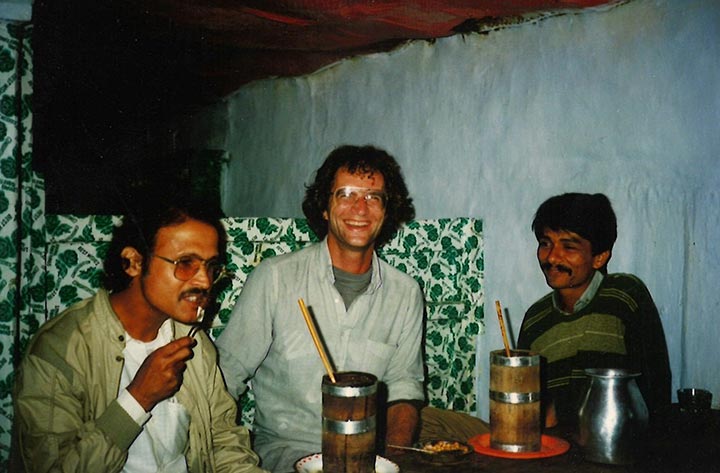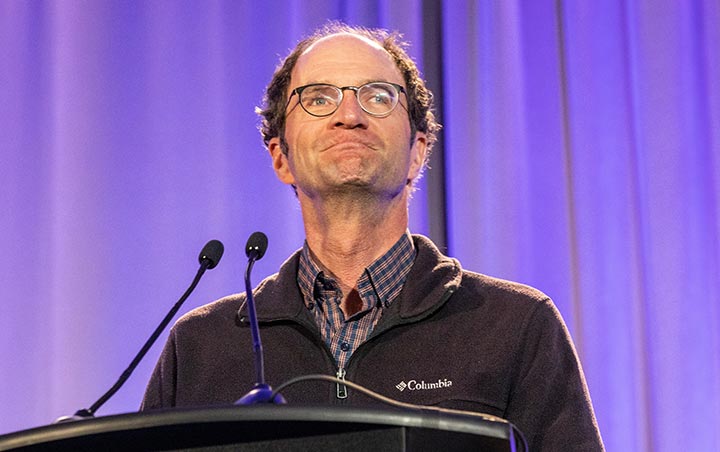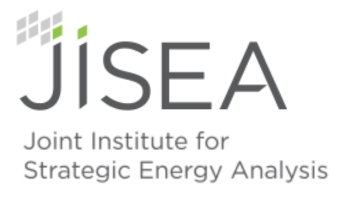Jeff Logan, Long-Standing JISEA Analyst, Has a World of Curiosity
July 30, 2020—From his dormitory in Nanjing, China, Jeff Logan had a front-row view of smoke from a neighboring factory. It was the early 90s and he worked at an institute teaching English to Chinese professionals. As he watched the greenish-black billows of smoke engulf the sky, he thought about the people, environment, factory, and economy impacted by the energy system.
For the first time, he knew that he would have a career in clean energy.
Today, Logan is one of the longest-standing analysts at JISEA. He has published more than 90 technical reports and journal articles and has traveled the world studying the clean energy transition.
A Curiosity That Came Alive
For years, Logan was on the path to an international energy career without knowing it.
He came alive when he went to Pennsylvania State University to study aerospace engineering and liberal arts. “I got to see the world for all its complexities for the first time. I felt like a kid in a candy store and wanted to learn everything—philosophy, astronomy, history, economics,” he said.
After graduating, Logan worked in industry for two years but realized he wasn’t done exploring. He joined the Peace Corps, where he taught high school math, science, and English in a remote Nepali village—one of the best adventures of his life that expanded his global perspective. A photo with a big grin and even bigger hair sitting at dinner with Nepali friends is still one of his favorite photos of himself.

Jeff Logan sits with friends in a Nepali cafe during his time in the Peace Corps. Photo courtesy of Jeff Logan
After completing the Peace Corps, he wanted to continue living in Asia and started working at the Chinese institute as a United Nations Volunteer.
After five wonderful years living in Nepal, Mainland China, and Taiwan, he went to Indiana University to get joint master’s degrees in public policy and environmental science with a specialization in energy and development, solidifying his path to clean energy.
Early Days with JISEA
After completing school, Logan worked for the U.S. Congressional Research Service, the World Resources Institute, the International Energy Agency, and Pacific Northwest National Lab. Before he knew it, nearly two decades in clean energy policy had flown by.
In 2008, Logan joined the National Renewable Energy Laboratory as a clean energy policy analyst, where he first became exposed to JISEA. “I was immediately drawn to JISEA and its systems approach. I love that it looks beyond individual technologies to consider the entire energy economy. It reflects my own philosophical and scientific approach to the world,” he said.
Taking a Lead in Natural Gas
Logan partnered with JISEA on its first major study on natural gas in 2011. Improved technology, access to capital, and innovative business practices had rapidly developed the shale gas supply, which prompted coal power plants to move to natural gas.
Logan led a robust study focused on energy analysis, investment risk, environmental impacts and policy design associated with natural gas and the power sector. The findings were published in the report Natural Gas and the Transformation of the U.S. Energy Sector: Electricity.
That same year, Logan was also selected as Special Advisor and Review Editor for the Intergovernmental Panel on Climate Change (IPCC) special report on renewable energy sources and climate change mitigation. “It was one of the most compelling projects I’ve ever done. To learn the process and participate in the dialogue was a once-in-a-career opportunity,” Logan said.
A Long Career of Impact

Jeff Logan accepts a performance award from NREL for exceptional work throughout his career. Photo by Werner Slocum, NREL
Over the past 12 years, Logan has continued to lead innovative work with JISEA on international power sector transformation, electrification, natural gas and renewable energy synergies, renewable energy policy design, and collaboration with key developing countries.
In a recent JISEA study, Logan explored options for South American countries to adopt more resilient, flexible, and sustainable power systems.
Logan also manages the 21st Century Power Partnership (21CPP), one of JISEA’s main programs under the Clean Energy Ministerial umbrella. He and his team are part of an ongoing collaboration with the International Energy Agency and recently completed a study on measures to improve power system flexibility.
In addition to his work at JISEA, Logan also leads the Policy and Analysis Group at the Renewable and Sustainable Energy Institute (RASEI) at the University of Colorado in Boulder.
The intellectual passion that came alive in college hasn’t let up. As industry and technology advances, Logan believes there is always more to learn. Looking ahead, he’s eager to build his understanding of very high-level renewable power systems, long-term renewable energy storage, and electric vehicle-grid integration. He also wants to help strengthen the pipeline of information, ideas, and staff between NREL/JISEA and the University of Colorado.
Outside of work, Logan spends a lot of time playing in the mountains behind his Boulder, Colorado, home, including biking, hiking, skiing, and running.
Back to JISEA News >
